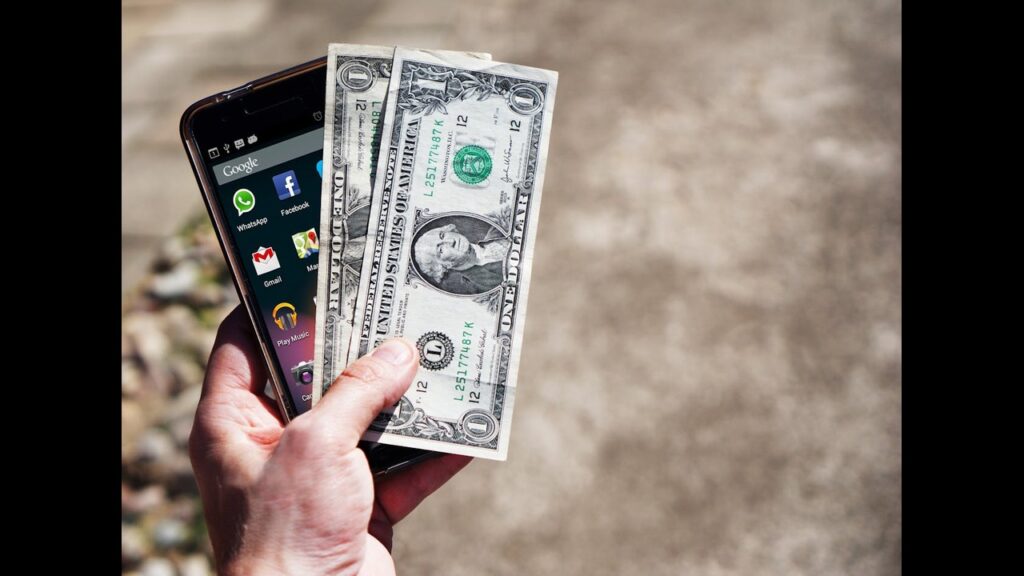Machine Learning Lottery Prediction 7
Machine Learning Lottery Prediction
Can AI Really Predict the Next Jackpot?

Lottery games have fascinated people for centuries with the allure of winning life-changing sums of money. The randomness of the draw, however, keeps most hopefuls dreaming. But what if advanced technologies like machine learning could change the odds? In recent years, machine learning lottery prediction has emerged as an exciting concept, with AI enthusiasts and data scientists exploring ways to improve chances in lottery games. Can machine learning really help predict lottery outcomes? Let’s dive deep into the fascinating intersection of AI and gambling to understand if machines can truly forecast the next big win.
What is Machine Learning? – Machine Learning Lottery Prediction
Machine learning (ML) is a subset of artificial intelligence (AI) that enables computers to learn from data without being explicitly programmed. Instead of following fixed rules, machine learning algorithms analyze vast amounts of data, recognize patterns, and make decisions or predictions based on this analysis. Machine learning is widely used in various industries—healthcare, finance, marketing, and more—to uncover insights and improve decision-making processes.
How Machine Learning Works in Lottery Prediction
Predicting lottery numbers might seem impossible due to the randomness involved, but some believe that machine learning can help improve the odds. Lottery results are often regarded as pure chance events, but machine learning algorithms can analyze historical data to identify patterns or anomalies that the human eye may miss. These patterns, while not definitive, can be used to make educated guesses.
Data Collection – Machine Learning Lottery Prediction
To begin predicting lottery numbers using machine learning, you first need data. The data typically includes historical winning numbers from lottery games, the dates of the draws, the frequency of specific numbers, and other relevant variables. The more data you have, the more accurate your predictions are likely to be, as the machine learning algorithm will have more information to learn from.
Feature Engineering – Machine Learning Lottery Prediction
Once the data is collected, it’s processed through a method called feature engineering. This involves selecting the most relevant features or variables that will help the machine learning model predict future outcomes. For lottery prediction, these features may include:
- Frequency of numbers over a specific period.
- How often numbers are drawn consecutively.
- The sequence of odd versus even numbers.
- The distribution of high versus low numbers.
Model Selection – Machine Learning Lottery Prediction

After processing the data, a machine learning model is selected. Different algorithms can be used, each with its strengths and weaknesses. Some of the most popular models for lottery prediction include:
- Regression models: These are used to find relationships between different variables in the data.
- Decision trees: These models split the data into branches based on conditions, helping to identify which numbers are more likely to be chosen.
- Neural networks: These are modeled after the human brain and can identify complex patterns in large datasets.
Training the Model – Machine Learning Lottery Prediction
The next step is to train the machine learning model using the historical data. This involves feeding the data into the model and allowing it to learn from past outcomes. The model identifies patterns and adjusts its parameters to minimize errors in prediction. The goal is to find patterns or trends in the data that are not easily recognizable to humans.
Testing and Prediction – Machine Learning Lottery Prediction
Once trained, the model is tested on unseen data (data that wasn’t used during the training phase) to evaluate its accuracy. If the model performs well on this test data, it can then be used to predict future lottery numbers. These predictions are, of course, not guarantees but can be viewed as educated guesses based on past trends.
Limitations of Machine Learning in Lottery Prediction
Despite its potential, there are significant limitations to using machine learning for lottery prediction.
Randomness and Lack of Patterns – Machine Learning Lottery Prediction
The primary challenge in predicting lottery numbers is the inherent randomness of the game. Lottery draws are designed to be unpredictable, with each number having an equal chance of being selected. Even with large datasets, machine learning algorithms may struggle to find meaningful patterns because the outcomes are truly random.
Overfitting – Machine Learning Lottery Prediction
In machine learning, overfitting occurs when a model is trained too well on historical data, capturing noise or irrelevant information. While the model may perform well on past data, it may fail to generalize to future draws. In the context of lottery prediction, this means the model may predict past winning numbers well but struggle to forecast future outcomes.
Ethical and Legal Considerations – Machine Learning Lottery Prediction
Some lotteries have strict regulations regarding attempts to manipulate or predict the game’s outcomes. Using advanced technologies like machine learning to predict lottery numbers may raise ethical and legal concerns, as it could be viewed as an unfair advantage.
Can Machine Learning Improve Your Lottery Odds? – Machine Learning Lottery Prediction

While machine learning can analyze historical data and identify patterns, it’s crucial to recognize that lotteries are structured as random events. No algorithm can completely eliminate the element of chance. However, machine learning may offer some advantages in lotteries with complex rules or specific patterns, such as:
- Number frequency analysis: Machine learning can help identify which numbers are more likely to appear based on historical draws.
- Lottery strategy optimization: Instead of predicting specific numbers, machine learning can be used to optimize lottery strategies, such as selecting numbers that have been underrepresented in recent draws.
For example, in lotteries where certain numbers appear more frequently than others (though still randomly), machine learning could help to identify these trends and give players a slight edge in choosing their numbers.
Famous Machine Learning Approaches to Lottery Prediction
Several case studies and personal projects have explored machine learning’s potential for predicting lottery outcomes:
LottoNet: Neural Networks for Lottery Prediction – Machine Learning Lottery Prediction
One example of applying machine learning to lottery prediction is LottoNet, a neural network-based model designed to predict winning numbers. Researchers used historical data and trained the model on several different types of lotteries. While the model didn’t consistently predict winning numbers, it showcased how neural networks can learn from complex datasets and identify patterns that human players might overlook.
Random Forests for Lottery Prediction – Machine Learning Lottery Prediction
Another approach involves using random forests, a machine learning technique that combines multiple decision trees to make predictions. This technique has been used in some cases to predict the likelihood of specific numbers being drawn. Like neural networks, random forests can analyze vast amounts of data and find patterns that might not be immediately obvious.
Ethical Implications of Lottery Prediction Using AI
As machine learning and AI continue to evolve, their use in lottery prediction raises ethical questions. Some critics argue that using such technologies to gain an advantage in lotteries may violate the spirit of the game, which is based on randomness and fairness. Others worry about the potential for exploitation, where sophisticated algorithms could disproportionately benefit individuals or groups with access to advanced technology, further widening the gap between everyday players and those with technical expertise.
The Future of Machine Learning and Lottery Prediction – Machine Learning Lottery Prediction.

As machine learning technologies improve, so too will the techniques for analyzing and predicting lottery outcomes. However, it’s important to keep in mind that no technology can fully eliminate the randomness inherent in lottery games. For now, machine learning offers a fascinating tool for enthusiasts to analyze patterns and trends, but it’s far from a surefire way to predict lottery numbers.
Conclusion: Is Machine Learning Worth It for Lottery Prediction?
In conclusion, machine learning lottery prediction is an exciting and growing field, but it has its limitations. While machine learning can analyze past data and identify patterns, it cannot overcome the randomness built into lottery games. Lottery players should view machine learning as a fun and educational tool rather than a guaranteed way to win big.
Ultimately, luck remains the dominant factor in lottery success, and no amount of data or technology can fully change that.

FAQs – Machine Learning Lottery Prediction
- Can AI predict lottery numbers?
While AI can analyze past data and trends, it cannot predict lottery numbers with complete accuracy due to the randomness involved in the draws. - How does machine learning help in lottery predictions?
Machine learning can analyze historical data and identify patterns that may help make educated guesses about future numbers, though the results are far from certain. - Are there any proven methods to improve lottery odds using AI?
AI may improve your odds slightly by identifying underrepresented numbers or trends, but no method can guarantee success in lotteries. - Is it legal to use machine learning to predict lottery numbers?
Laws vary by jurisdiction, but in many cases, using advanced technology to predict lottery outcomes could raise legal and ethical concerns. - What are the main challenges of using machine learning for lottery prediction?
The biggest challenge is the randomness of lottery draws, which makes it difficult for even the most advanced algorithms to make reliable predictions. - Can machine learning outperform traditional lottery strategies?
Machine learning can offer some advantages, but the randomness of lotteries means that traditional strategies like picking random numbers or relying on luck are still relevant. Machine Learning Lottery Prediction.
Another PJ Multi Services Company
You got a very excellent website, Gladiola I observed it through yahoo.
This blog is definitely rather handy since I’m at the moment creating an internet floral website – although I am only starting out therefore it’s really fairly small, nothing like this site. Can link to a few of the posts here as they are quite. Thanks much. Zoey Olsen
I?¦ve recently started a site, the info you provide on this website has helped me greatly. Thank you for all of your time & work.
I was recommended this website by my cousin. I am not sure whether this post is written by him as nobody else know such detailed about my trouble. You are wonderful! Thanks!
I loved as much as you’ll receive carried out right here. The sketch is tasteful, your authored subject matter stylish. nonetheless, you command get bought an shakiness over that you would like be delivering the following. in poor health for sure come more earlier again as exactly the similar just about very frequently within case you defend this hike.